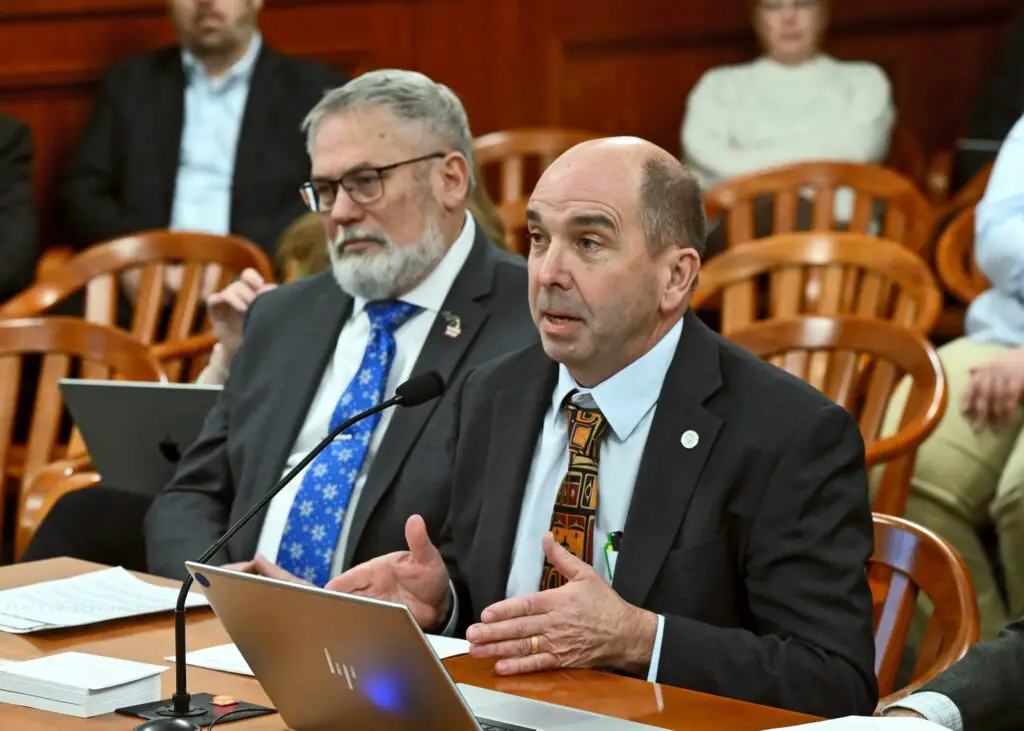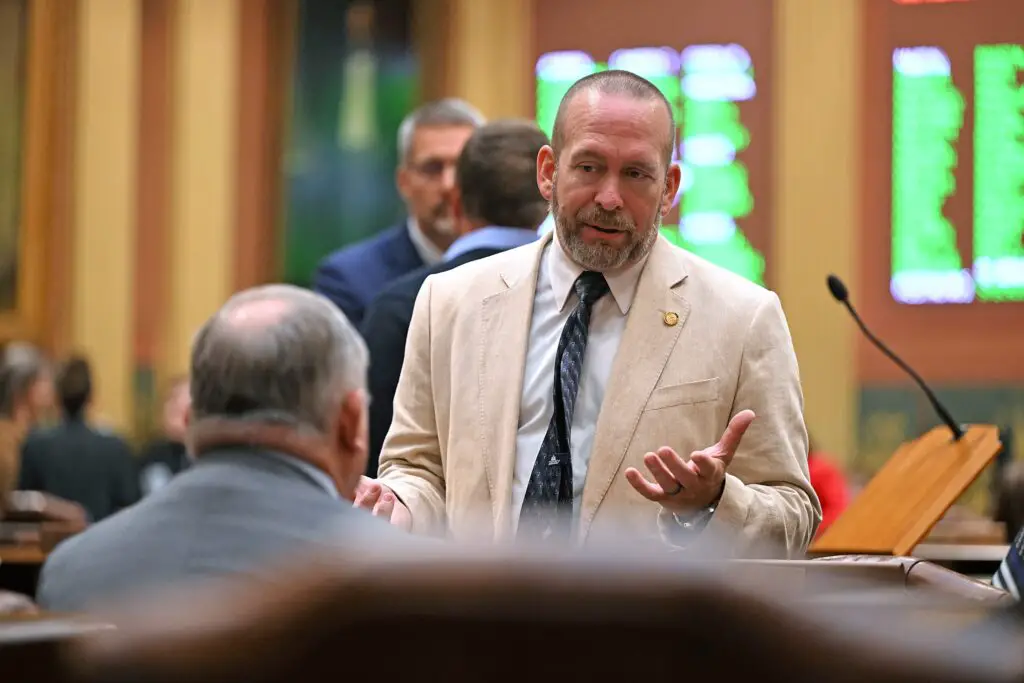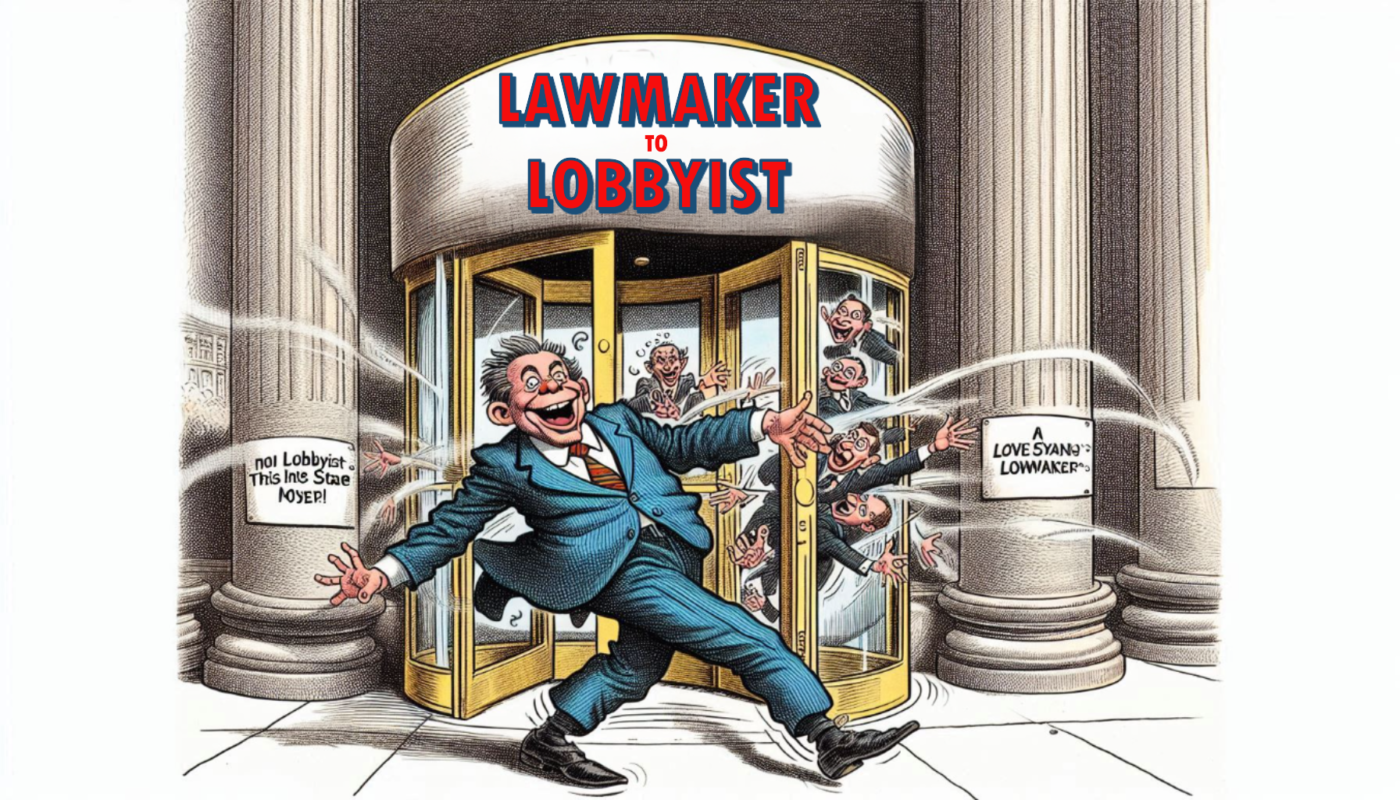Michigan lawmakers advance bills to ban officials from becoming lobbyists immediately after leaving office, citing ethics concerns and conflicts of interest.
Lawmakers advance bipartisan plan to block legislator-to-lobbyist pipeline
LANSING — Michigan legislators took a significant step toward limiting the influence of special interests by advancing a plan to prevent top state officials from immediately transitioning into lobbying roles after leaving office. The House Government Operations Committee approved a three-bill package aimed at closing the so-called “revolving door” between lawmakers and lobbying firms.
The panel’s Republican majority passed House Bills 4062, 4063, and 4064, with three GOP members supporting the measures while two Democrats abstained. The proposed laws would impose a mandatory two-year waiting period before former legislators or state department directors can register as lobbyists.
“Government officials should do the job they have — serving the people of Michigan — without letting any conflicts of interest distract them from that duty,” said Rep. Mike Harris, R-Waterford, who serves as vice chair of the committee.
Political career shifts raise ethics concerns

Michigan has long been criticized for its lack of restrictions on public officials turning to lobbying immediately after leaving office. The rapid transition of legislators into lobbying positions has fueled concerns that policymakers may be crafting laws with their future careers in mind rather than focusing on public service.
“We’re here to represent our communities, not line up future job opportunities,” said Rep. Jerry Neyer, R-Shepherd, who introduced HB 4064. “After years of watching people go to sleep as legislators and wake up as lobbyists, something had to be done.”
The issue has been magnified by past instances where sitting legislators actively lobbied for out-of-state interests. Neyer pointed to a case where a Michigan lawmaker received payment for advocating policy changes while still in office.
Lobbying restrictions come with penalties

Under HB 4062 and HB 4063, former representatives, senators, and department heads would be prohibited from registering as lobbyists within two years of leaving office. Violators could face a misdemeanor charge, up to 90 days in jail, and a $1,000 fine.
The companion bill, HB 4064, directly targets sitting legislators by prohibiting them from accepting paid advocacy roles while in office. Lawmakers cited a specific example where a legislator was paid to lobby for the National Popular Vote while still serving in the Michigan House.
Michigan lags in ethics laws
Michigan is one of the few states without cooling-off periods for former lawmakers entering lobbying positions. According to a 2023 report by the National Conference of State Legislatures (NCSL), 36 states have some form of restriction, with many imposing bans ranging from one to three years.
Ethics watchdogs argue that the absence of such laws erodes trust in government. “When the same people writing laws today become the ones profiting from those laws tomorrow, it raises serious concerns about integrity and fairness,” said John Chamberlin, a political ethics expert at the University of Michigan.
Next steps in the legislative process
The bills now advance to the full House of Representatives for debate and a potential vote. If approved, they will proceed to the Michigan Senate before reaching Gov. Gretchen Whitmer’s desk.
Lawmakers from both sides of the aisle have expressed cautious optimism about the plan’s chances. While the measures have gained support among Republicans, some Democrats have remained silent on the proposal, abstaining from the initial committee vote.
Rep. Harris emphasized the need for bipartisan cooperation: “By blocking the legislator-to-lobbyist pipeline, our bipartisan plan will strengthen ethics in state government and set the focus on delivering results for the people.”
Find More Interesting Feature Stories From ThumbWind
- Michigan Feature Stories – Unveiling the diverse and vibrant people, captivating places, and remarkable events that make the Great Lake State unique.
- Weird Political News – A sarcastic take on official news from around the U.S., exploring the absurdities of politics with a humorous perspective.
- Michigan News – Local stories, impactful interviews, and updates on community happenings shaping Michigan’s culture and lifestyle.
Your Turn – Like This, or Loath it – We Want To Hear From You
Please offer an insightful and thoughtful comment. We review each response. Follow us to have other feature stories fill up your email box, or check us out on ThumbWind Publications.




